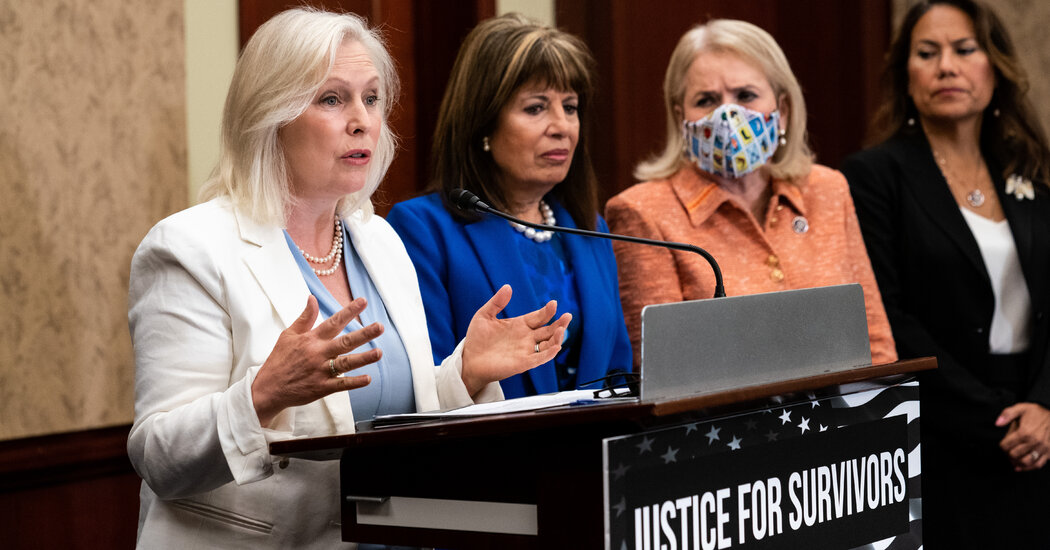

“We do not comment about our communications with members of Congress,” said John F. Kirby, the chief Pentagon spokesman.
“While not perfect, the agreement is far from a setback for survivors and their advocates,” said Lynn Rosenthal, the chairwoman of an independent review commission that Mr. Austin appointed this year to come up with recommendations on the issue. “Instead, it represents a historic step toward justice.”
General Mark A. Milley, the chairman of the Joint Chiefs of Staff, had long opposed the changes but acknowledged last spring that junior enlisted troops had largely lost faith that sexual assault cases would be handled fairly.
The movement gained momentum last year after the death of Vanessa Guillen, an Army specialist who law enforcement officials said was killed by another soldier at Fort Hood in Texas. The case set off a deep examination of the culture of the Army base and the broader military in which assault has remained pervasive. Years of small legislative steps have done little to stem the problem, and Ms. Gillibrand, as well as Representative Jackie Speier, Democrat of California, who had also worked on legislation for years, was often rebuffed by fellow lawmakers and Pentagon officials.
Senator Joni Ernst, Republican of Iowa and a retired National Guard lieutenant colonel, said her own experience with sexual assault informed her views on the issue, which in turn influenced other Republicans to support such efforts this year.
The new law will take two years to roll out, lawmakers said.
In 2019, the Defense Department found that there were 7,825 reports of sexual assault involving service members as victims, a 3 percent increase from 2018. The conviction rate for cases was unchanged from 2018 to 2019; 7 percent of cases that the command took action on resulted in conviction, the lowest rate since the department began reporting in 2010. An independent 2020 review found that more than 30 percent of charges of penetrative sexual offense should not have been brought to trial because of insufficient evidence.
“Though this agreement clearly does not include everything my colleagues and I pushed for,” Ms. Speier said, “it is a giant leap forward for survivors of sexual assault and marks a watershed moment in the fight for justice for those failed by the current system, and the family members of those slain or who died by suicide as a result of that failure.”
